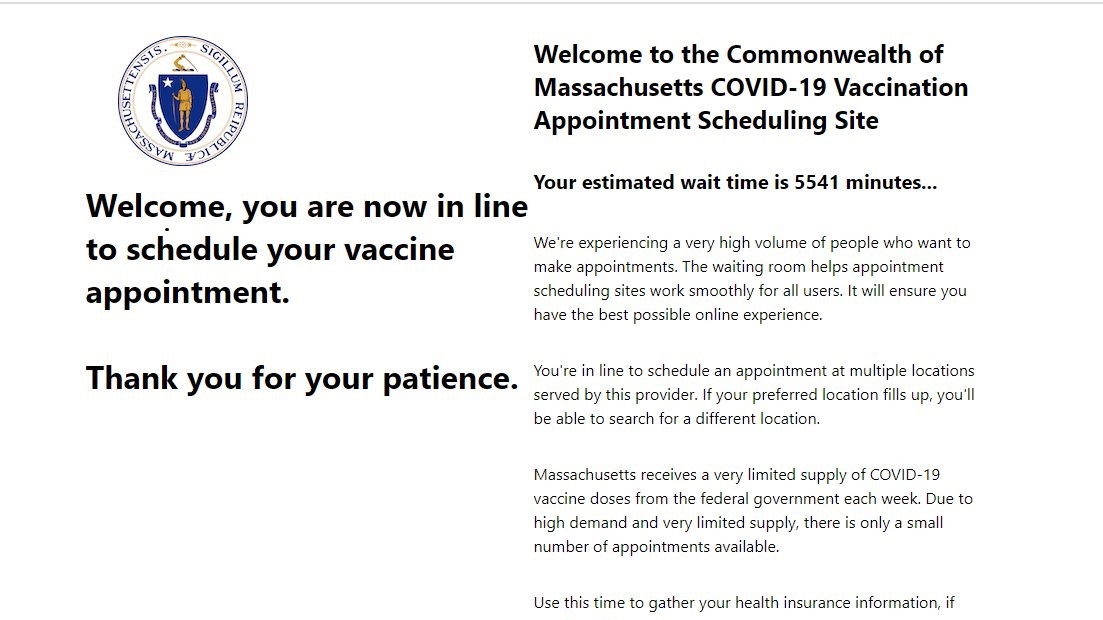Massachusetts is returning to Phase 3, Step 2 of the coronavirus reopening plan on Monday, easing restrictions imposed to combat the most recent surge in the virus.
The state's been at that step in the plan before, but not the fourth and final phase. However, Gov. Charlie Baker also announced Thursday when the state hopes to move to the first step of Phase 4.
WATCH ANYTIME FOR FREE
>Stream NBC10 Boston news for free, 24/7, wherever you are. |
Below, read the announcement of Massachusetts' upcoming moves to Phase 3, Step 2 and the plan for Phase 4, Step 1 sent out by the Baker administration Thursday:
Get updates on what's happening in Boston to your inbox. Sign up for our >News Headlines newsletter.
Today, the Baker-Polito Administration announced that Massachusetts would advance to Step 2 of Phase III of the state’s reopening plan on Monday, March 1, and also announced its plan to transition to Step 1 of Phase IV on Monday, March 22. With public health metrics continuing to trend in a positive direction, including drops in average daily COVID cases and hospitalizations, and vaccination rates continuing to increase, the Administration is taking steps to continue to reopen the Commonwealth’s economy.
The Administration also announced more than $49 million in awards to 1,108 additional small businesses in the eighth round of COVID-19 relief grants administered by the Massachusetts Growth Capital Corporation (MGCC). These new awards are the result of work by MGCC to engage with applicants that meet sector and demographic priorities but are missing certain documents that are necessary to be considered for an award.
Phase III, Step 2:
On May 18, 2020, the Baker-Polito Administration released a four-phased plan to reopen the economy conditioned on sustained improvements in public health data. As of October, 2020, the reopening had proceeded to Step 2 of Phase III of the plan. On December 13, 2020, in response to an increase in new COVID-19 infections and hospitalizations following the Thanksgiving holiday, the Commonwealth returned to Step 1 of Phase III, reducing capacities across a broad range of sectors and tightening several other workplace restrictions.
Since the beginning of this year, key public health data, such as new cases and hospitalizations, have been closely monitored and a significant decline has been documented, allowing for a return to Step 2 of Phase III, effective March 1 for all cities and towns. This includes the following updates to businesses, activities and capacities:
- Indoor performance venues such as concert halls, theaters, and other indoor performance spaces will be allowed to reopen at 50% capacity with no more than 500 persons
- Indoor recreational activities with greater potential for contact (laser tag, roller skating, trampolines, obstacle courses) will be allowed to reopen at 50% capacity
- Capacity limits across all sectors with capacity limits will be raised to 50% and exclude employees
- Restaurants will no longer have a percent capacity limit and will be permitted to host musical performances; six-foot social distancing, limits of six people per table and 90 minute limits remain in place
Residents must continue to wear masks to prevent the spread of COVID-19, and are encouraged to avoid contact outside of their immediate households. The Travel Advisory and other public health orders remain in effect.
Gathering Changes and Phase IV Start
Provided public health metrics continue to improve, effective on March 22, all communities in Massachusetts will move into Step 1 of Phase IV of the state’s reopening plan. This will open a range of previously closed business sectors under tight capacity restrictions that are expected to be adjusted over time if favorable trends in the public health data continue. Effective on the planned advancement to Step 1 of Phase IV, the following industries will be permitted to operate at a strict 12% capacity limit after submitting a plan to the Department of Public Health (DPH):
- Indoor and outdoor stadiums
- Arenas
- Ballparks
Also effective on March 22, gathering limits for event venues and in public settings will increase to 100 people indoors and 150 people outdoors. Outdoor gatherings at private residences and in private backyards will remain at a maximum of 25 people, with indoor house gatherings remaining at 10 people.
Additionally, dance floors will be permitted at weddings and other events only, and overnight summer camps will be allowed to operate this coming summer. Exhibition and convention halls may also begin to operate, following gatherings limits and event protocols. Other Phase IV sectors must continue to remain closed.
COVID-19 Business Relief Grants
Today, an additional 1,108 businesses are receiving COVID-19 relief grants totaling more than $49 million in awards to help with expenses like payroll, benefits, utilities and rent. To date, the Baker-Polito Administration has awarded more than $563 million in direct financial support to 12,320 businesses impacted by the pandemic through the Small Business and Sector-Specific Grant Programs.
Each business meets sector and demographic priorities set for the two grant programs. More than half of grantees are restaurants, bars, caterers, operators of personal services like hair and nail salons, and independent retailers. Over half of the businesses receiving relief are women-and-minority-owned enterprises.
Today’s awards are the result of a process by MGCC to engage directly with applicants that met sector and demographic priorities but were missing documents necessary to be considered for an award. MGCC is continuing to work with business owners in targeted sectors and demographic groups to allow for applicants to submit necessary documents.



